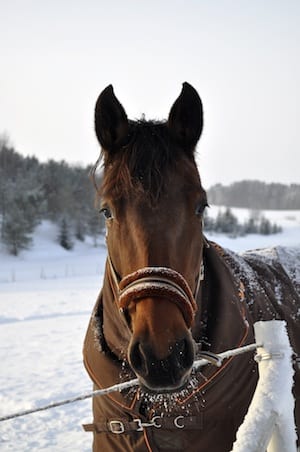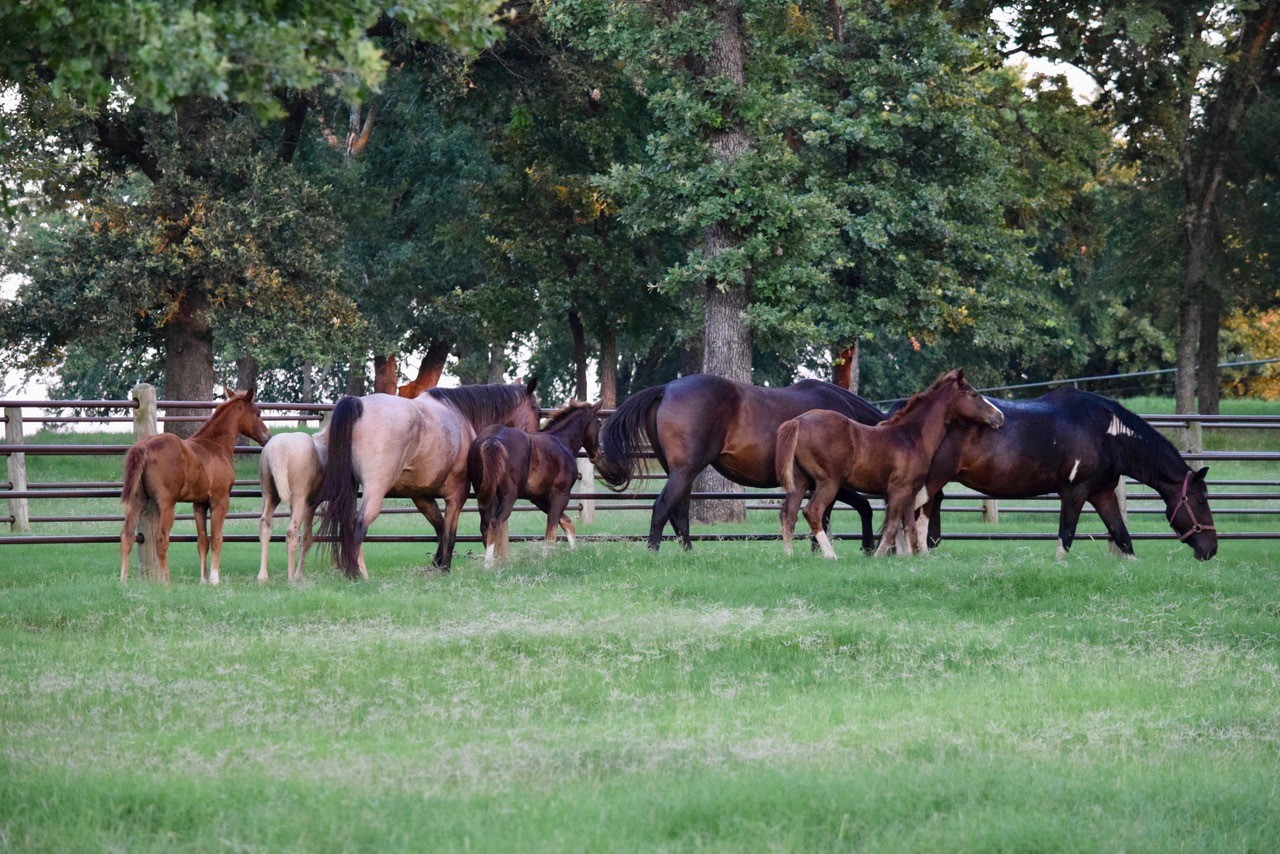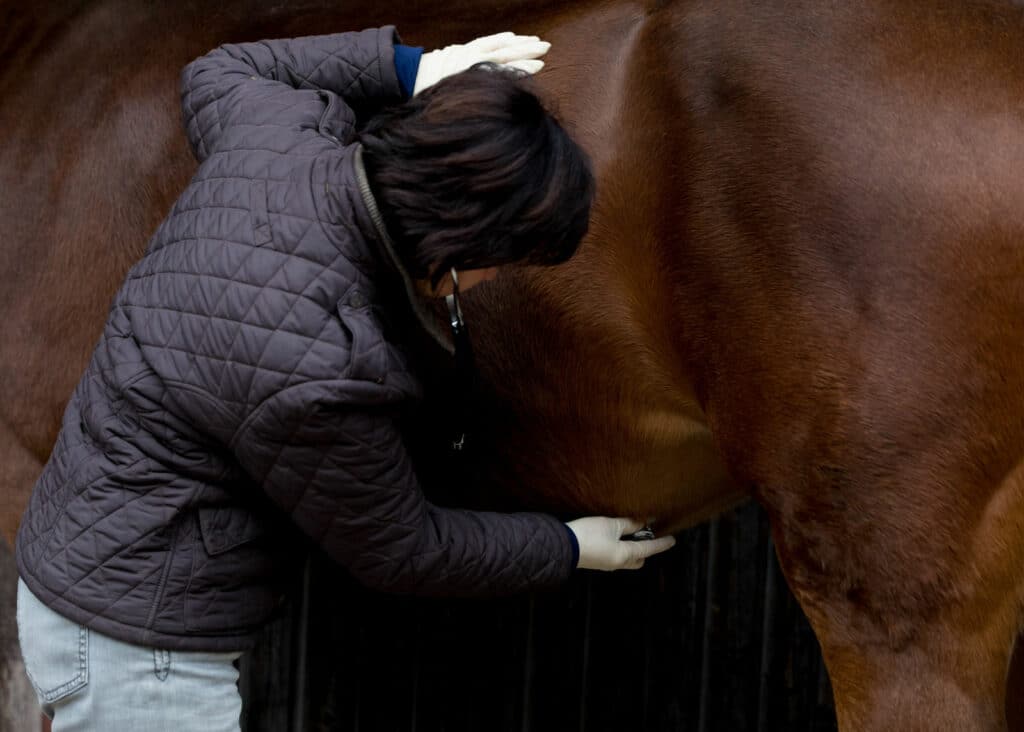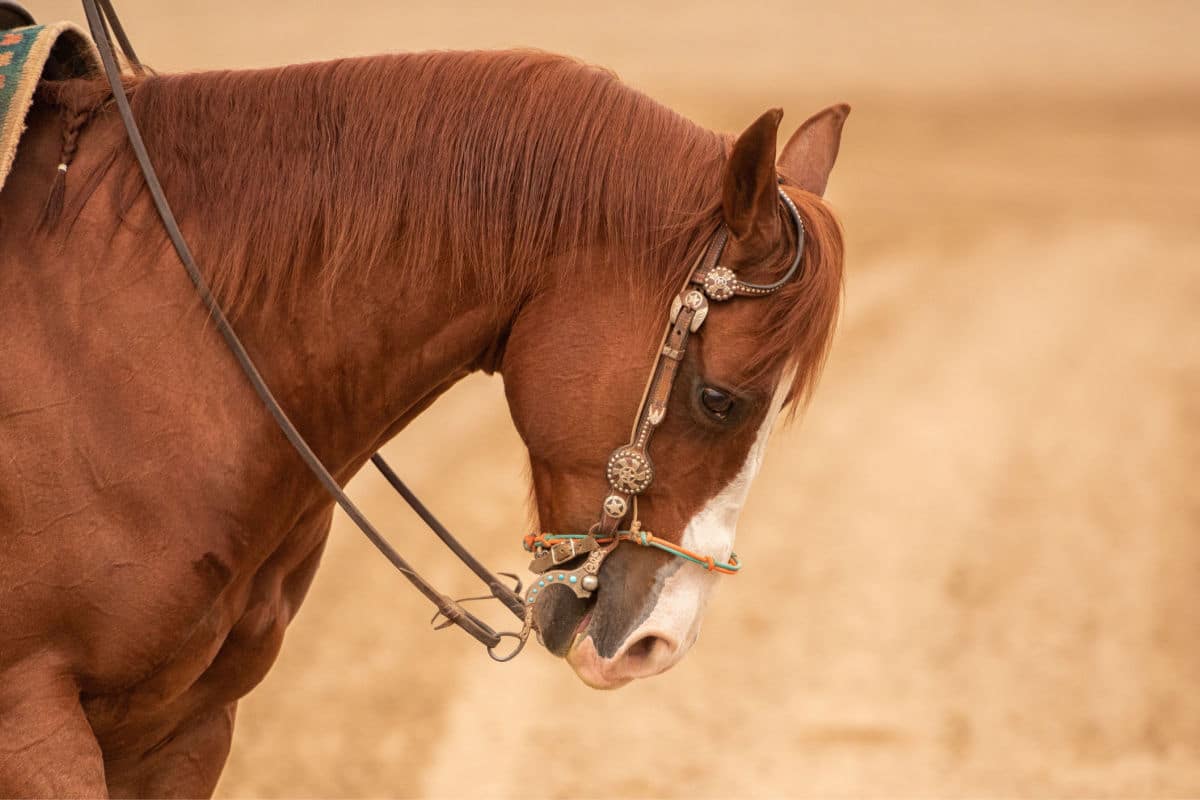
Ah, winter. Hitting the gym and losing weight to get in shape before summer are top on many people’s to-do lists, but you might notice your horse slimming down this time of year, too. Sympathy weight loss? Unlikely, but cold weather, different feeding habits and increased stall time can have a big impact on your horse’s health.
There are several factors that contribute to your horse’s winter weight loss, and most can’t be fixed simply by throwing grain or hay at the problem.
In Combating Your Horse’s Winter Weight Loss Pt. 1, we’ll look at some of the common causes of wintertime weight loss. In Parts 2-4, we’ll move on to
assessing your horse’s condition,
strategies for weight gain or maintenance, and advice on preparing now for next winter. Be sure to subscribe to the SUCCEED blog or sign up for email notifications in the sidebar.
To get the scoop on the best practice for winter horse care, we turned to our own Frank Pellegrini DVM and trainer Bill Rodgers, as well as Scott Leibsle, deputy state veterinarian in Idaho.
Causes For Winter Weight Loss in Horses
Many things can be blamed for a shaggy, underweight equine during the wintertime months, but several of the most common include the following:
- Poor Feeding Regimen
- Not taking into account increased caloric needs
- Feeding the wrong quantity or quality of grain and hay
- Dehydration
- Parasites
- Dental issues
- Age
Of course, some of these factors are out of your control; you can’t turn back the clock for your retired eventer, but being aware of the causes can help you tweak those things you can control.
Poor Feeding Regimen
Horses need
constant access to quality grass or hay, rather than one or two big hay and grain dumps morning and night. Horses are foragers that munch up to 18 hours a day, which is why you’ll notice happy, healthy horses during the summer months if they’re turned out on good pasture to graze.
Inattention to Increased Caloric Need During Winter Months
Like people, horses need to burn more calories to stay warm during winter months. Humans often use that as an excuse to indulge in a second slice of cake on a long winter’s evening, but horses legitimately need those calories in the form of forage. A healthy digestive system is an active digestive system — and digestion helps create heat, too.
Feeding the Wrong Quantity or Quality of Hay
All hay is not created equal. You probably already know that hay varies in quality, ranging from low-protein oat hay to mid-protein grass/timothy hay, to protein-heavy alfalfa. If you have any doubts about hay quality, request a professional hay analysis from your hay dealer.
Feeding the Wrong Quantity or Quality of Grain
As any owner of a hard-keeping horse will tell you, giving your horse more to eat doesn’t necessarily mean he’ll put on weight. Feeding more grain morning and night can actually
cause your horse to lose weight, since processed feeds are harder for horses to digest (especially in large quantities). Undigested starch in the hindgut can cause diarrhea,
ulcers,
colic and plenty of other problems that cause weight loss.
Dehydration
Just as you probably don’t feel like guzzling ice-cold water when it’s snowing outside, horses are also more prone to dehydration in the wintertime — and care givers who forget to break the ice on water buckets don’t help things! Since horses need water to process their food, dehydration can lead to all sorts of problems in the hindgut, including increased acidity and toxins that can make your horse uncomfortable or lead to more serious issues like
hindgut acidosis,
colonic ulcers, and
colic.
Parasites
Your horse is probably already on some type of worming schedule, but remember that while worms go dormant in the winter, they don’t die off completely. Be sure to stay up-to-date on fecal exams (Halloween and Easter are good target dates).
Dental Issues
Poorly tended teeth are a common cause of winter (and summer!) weight loss. If a horse can’t chew, he can’t eat. Chewing also produces saliva, which buffers the continual production of acids in the horse’s stomach – offering a natural protection against
gastric ulcers. Also, these starches and sugars can reach the hindgut when the horse is unable to chew properly and consumes grain meals too quickly. Undigested starch in the hindgut creates lactic acid which causes the horse discomfort, and can also lead to
colic and laminitis.
Age
A horse’s age plays a major role in his ability to maintain winter weight, as the fingerlike projections that
absorb nutrients in a horse’s digestive tract don’t work as well as the horse ages. Like humans, older horses’ teeth as well as kidneys and liver, also deteriorate over time, which is why it’s imperative to keep your horse’s digestive system as healthy as possible through good feeding habits and attention to overall health.
Next Up: How To Assess Your Horse’s Body Condition
Common problems identified, we’ll talk about how to
evaluate your horse’s weight and condition in the next post so you can target winter weight loss problems early on — or before they begin.
Be sure to subscribe to the SUCCEED blog or sign up for email notifications in the sidebar so you don’t miss
Part 2: Assessing your horse’s condition.
Read the Complete Winter Weight Loss Series
 Ah, winter. Hitting the gym and losing weight to get in shape before summer are top on many people’s to-do lists, but you might notice your horse slimming down this time of year, too. Sympathy weight loss? Unlikely, but cold weather, different feeding habits and increased stall time can have a big impact on your horse’s health.
There are several factors that contribute to your horse’s winter weight loss, and most can’t be fixed simply by throwing grain or hay at the problem.
In Combating Your Horse’s Winter Weight Loss Pt. 1, we’ll look at some of the common causes of wintertime weight loss. In Parts 2-4, we’ll move on to assessing your horse’s condition, strategies for weight gain or maintenance, and advice on preparing now for next winter. Be sure to subscribe to the SUCCEED blog or sign up for email notifications in the sidebar.
To get the scoop on the best practice for winter horse care, we turned to our own Frank Pellegrini DVM and trainer Bill Rodgers, as well as Scott Leibsle, deputy state veterinarian in Idaho.
Ah, winter. Hitting the gym and losing weight to get in shape before summer are top on many people’s to-do lists, but you might notice your horse slimming down this time of year, too. Sympathy weight loss? Unlikely, but cold weather, different feeding habits and increased stall time can have a big impact on your horse’s health.
There are several factors that contribute to your horse’s winter weight loss, and most can’t be fixed simply by throwing grain or hay at the problem.
In Combating Your Horse’s Winter Weight Loss Pt. 1, we’ll look at some of the common causes of wintertime weight loss. In Parts 2-4, we’ll move on to assessing your horse’s condition, strategies for weight gain or maintenance, and advice on preparing now for next winter. Be sure to subscribe to the SUCCEED blog or sign up for email notifications in the sidebar.
To get the scoop on the best practice for winter horse care, we turned to our own Frank Pellegrini DVM and trainer Bill Rodgers, as well as Scott Leibsle, deputy state veterinarian in Idaho.



